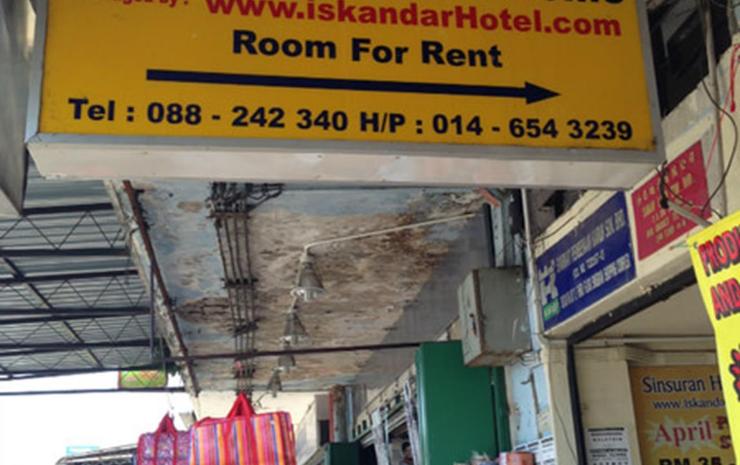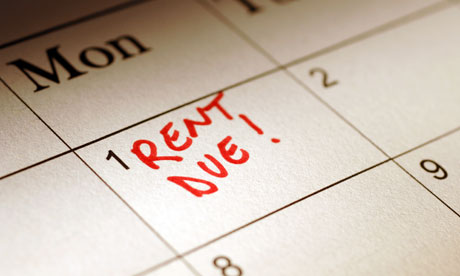Important Things To Note About Your Rights If You're Renting A Room Or House In Malaysia
Protect yourself from any exploitative practices!
Did you know that Malaysia does not have a specific act that governs tenants and landlords?
While the country does not have a single act that governs all matters related to renting, The Malaysian Bar says that there are a number of provisions under Part 15: Leases & Tenancies of the National Land Code 1965, that is usually used to solve any disputes related to tenancy, namely:
1. Contracts Act 1950 - for matters related to the tenancy agreement.
2. Civil Law Act 1956 - for matters related to rent payments.
3. Distress Act 1951 - for when the landlords wish to evict the tenants, the rights tenants have pertaining to the matter.
4. Specific Relief Act 1950 - landlords are prohibited from evicting the tenant, change the locks, etc without a court order.
5. Common Law/Case Law - for all matters related to tenancy.
Having said that, here are some important things you need to know as a tenant to best protect yourself from any exploitative practices:
1. Tenancy agreement
A tenancy agreement is defined as a contract signed by both the landlord and tenant which clearly states all the terms and conditions regarding the rental of a property.
Both parties are allowed to negotiate the terms of the tenancy agreement and once they agree and sign the paper, the landlord and tenant are bound by the terms in the said agreement.
While it is rather common for landlords to craft their own tenancy agreement, it is best to hire a lawyer to do so or at least revised by a professional, to ensure that all parties are best protected during the tenancy period.
Note that there are legal fees involved for drafting the tenancy agreement and while it is usually borne by the landlord, there is no specific provision on this. Thus, if the property owner is the one who has hired a lawyer to craft the agreement, tenants are usually advised to hire their own lawyer to vet through agreement before signing it.
The legal fees and stamp duty by Lembaga Hasil Dalam Negeri Malaysia (LHDN) are as follows:
Legal fees for tenancy agreement period of three years and below:
First RM10,000 rental – 25% of the monthly rent
Next RM90,000 rental– 20% of the monthly rent
More than RM100,000 – negotiable
Stamp duty for LHDN:
Rental for every RM250 in excess of RM2,400 rental
Less than 1 year: RM1
Between 1-3 years: RM2
More than 3 years: RM3
Annual rental below RM2,400 – no stamp duty
So, here's an example of how the calculations would be if you're renting a property for RM1,500 per month:
Legal fee: RM1,500 x 25% = RM375
Stamp Duty: (RM18,000 (annual rent) - RM2,400) / RM250 x 1 year = RM62.40
Total for legal fees and stamp duty: RM437.40
The information above on legal fee details for tenancy agreement is from Speedhome, an online platform for people to directly rent from its website.
2. What are some of the important details you must look out for in a tenancy agreement?
To ensure that everything is accounted for and discussed prior to the start of the tenancy duration, ensure that these details are included in the agreement and that you agree to it as a tenant:
a) Monthly rental:
- The Control of Rent Act 1966 [Act 363] was abolished in the year 2000, so rents can usually be negotiated freely. However, most landlords would already have a set amount of monthly rental that tenants comply to, so it's best to check if both parties are on the same page.
- The agreement must also include a set date on when the rent should be paid monthly. Most landlords would require for the rent to be paid by the 1st of every month, but you can negotiate the details with your landlord and come up with a date that you can both agree on, should you need to pay at a slightly later date every month.
b) Security deposit:
The security deposit is used to cover any damages to the property or any of the furniture provided by the landlord that is caused by the tenant during the tenancy period.
The deposit may be forfeited if the tenancy comes to an end before the agreed actual end-date. This will usually be indicated in the tenancy agreement under the section which mentions how many days/months notice a tenant has to give the landlord before ending the tenancy agreement.
It is a common practice in Malaysia for most landlords to ask for a security deposit of two months' gross rental and half a month's rent as utility fees (water and electricity) deposit. So, if the monthly rental is RM1,000, then the security deposit will be RM2,500.
Should there be no issues with the tenancy, both the security and utility deposit will be returned in full to the tenant at the end of the tenancy agreement.
c) Mode of payment for monthly rental:
- Rent is commonly paid via online bank transfers for hassle-free monthly transaction. However, as a tenant, make sure that you receive the receipts for each month's rental payment in a timely manner.
d) Details of the landlord and tenant:
- The tenancy agreement must include the full name, IC/passport number, and address of both parties for references. It is important for both parties to know these details should any problem arise with the tenancy.
e) Tenancy commencement and end date:
- Tenancy commencement date is basically the date that the tenant is given the keys to the property and he/she moves in. The tenant has to move out on the set end date of the tenancy duration. This provision will also include the amount of notice (days/months) a tenant must give before moving out or if they want to renew the tenancy agreement.
f) Any other special conditions required by the landlord:
- This can be anything from a 'no pets' rental policy, a limit on the number of people allowed to live in the house, parking areas, to indicating whether or not the tenant can smoke in or near the property.
Make sure you speak to your landlord if you disagree on the terms stated in the tenancy agreement before signing it, even if the landlord says it is just a 'standard agreement'. This can avoid costly, time-consuming legal problems in the future - during the duration of tenancy.
3. Can the landlord kick or lock the tenant out if the latter does not pay the rent in a timely manner?
According to an article by Christopher Chan, the Associate Director and Registered Estate Agent with the Hartamas Real Estate Group published on Star Property earlier this year, it is unlawful for property owners to evict their tenants or recover possession of the house/room without a court order under Section 7(2) of the Specific Relief Act 1950.
As such, landlord are prohibited from resorting to changing the locks or kicking out the tenants without the necessary court documents. Should they do so, they can be sued for trespassing by their tenants.
Christopher also explained the legal process a landlord must go through to deal with tenants that do not pay their rents.
With the assistance of a lawyer, the landlord should first give the tenant a notice to pay the rent. If the tenant still fails to settle the arrears and make payment of the monthly rent as agreed on the tenancy agreement, the landlord can then serve the tenant with a notice of termination of rent and file a suit against the tenant claiming the arrears of rent to for a court order for the tenant to vacate the property.
The article mentioned that the legal process will take about seven months and may cost the landlord about RM10,000.
As a tenant, make sure that you make the monthly rental payments in a timely manner and should you have any problems with the rent, contact your landlord immediately and speak to them about it. It is important to be mindful of the fact that certain landlords do rely on the monthly rentals they collect as their monthly income.
Dealing with tenancy matters can be a little tedious, but you can minimise and avoid problems by ensuring that you and your landlord are on the same page
As a tenant, make sure you have a detailed tenancy agreement, comply to the rules and requests (if any), and be responsible with your rental payments.
Also, remember, as novelist Edward Bulwer-Lytton said, the "pen is mightier than the sword", so write down everything and have physical proof of all payments (insist on receipts) and agreements. Don't skimp on legal fees and end up spending more in the future if problems arise with your landlord.
Ultimately, is a two-way code of conduct that must be respected by both the landlord and tenant. If both parties are considerate and trustworthy, the tenancy can be a stress-free one.
However, if you do end up with a pesky landlord, here are some legal organisations that may be able to help you:


